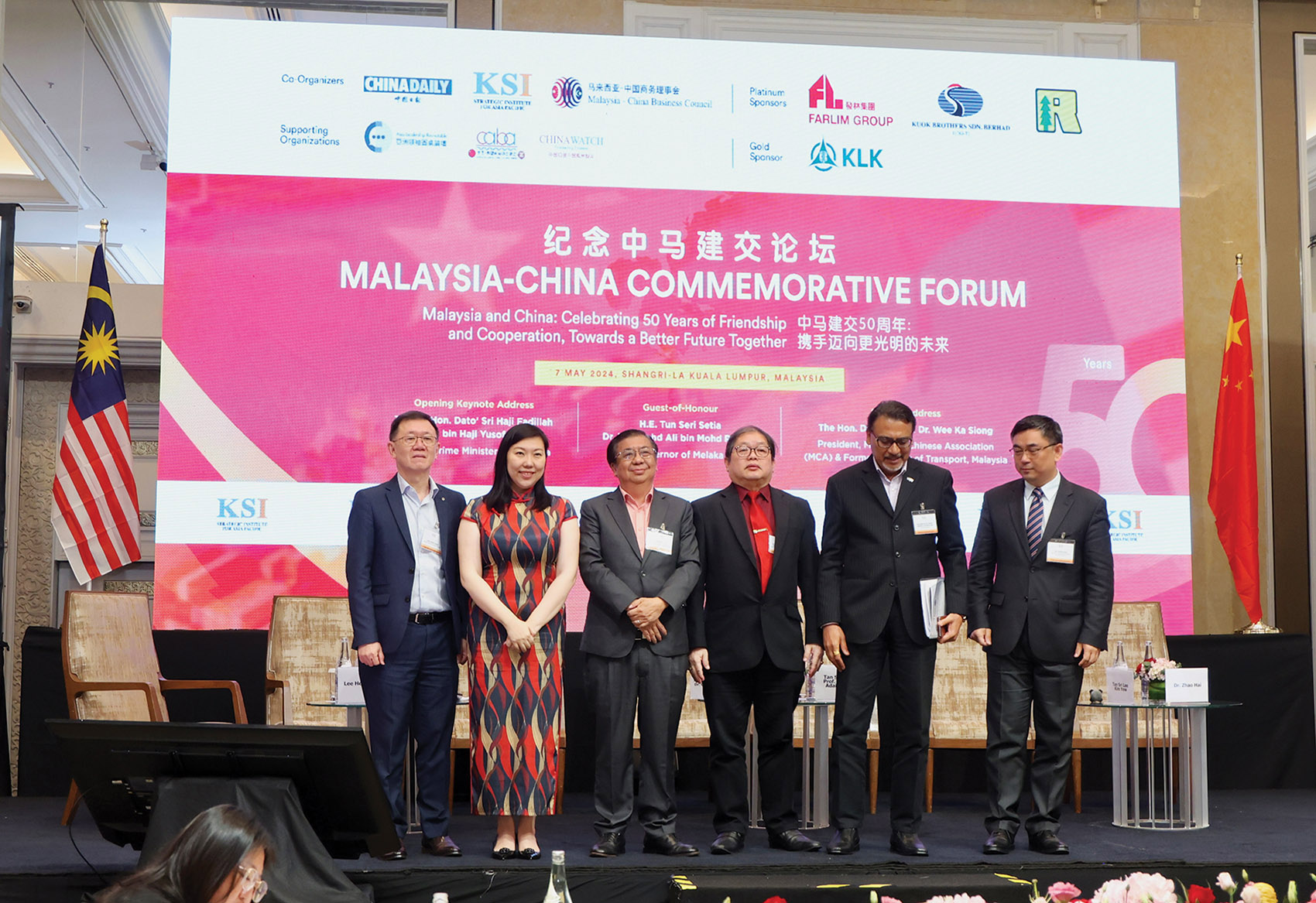
The younger generation will play a crucial role in the future of China-Malaysia relations, as people are at the heart of the partnership, a Hong Kong lawmaker told a forum in Kuala Lumpur on Tuesday.
“Partnership is always about people — how deeply we can communicate and how we can work together to build something,” said Nixie Lam Lam, a member of the Legislative Council of the Hong Kong Special Administrative Region.
Lam was speaking at a panel discussion titled “Driving Future Bilateral Partnership between Malaysia and China” at the Malaysia-China Commemorative Forum.
READ MORE: China-Malaysia ties reach new horizons of cooperation
The forum was held to commemorate the 50th anniversary of China-Malaysia diplomatic relations on May 31.
Recalling her visit to Malaysia two years ago, Lam said she was impressed by the local students’ interest in Hong Kong television series, which inspired her to suggest the SAR government increase youth exchanges.
“There is a lot we need to do in Hong Kong. We need a lot more youngsters to come and develop business,” said Lam.
She said, for example, that there are only about 130 halal-certified restaurants in Hong Kong, and it will be a significant market for cooperation with Muslim-majority Malaysia.
It is people who make the economy work, so the governments of Malaysia and China should focus more on people-to-people exchanges, especially in the business sector, said Lee Kim Yew, founder and advisor of Country Heights Group of Companies and first chairman of the Malaysia-China Business Council.
To better facilitate cross-border trade, he said he hopes to see more monetary cooperation between China and Malaysia, as well as the Association of Southeast Asian Nations, to reduce the negative impact of the US dollar on regional currencies.
Noting that the policy transition of the United States in economic and political areas has created challenges for both China and Malaysia, Zhao Hai, director of International Political Studies at the National Institute for Global Strategy, said more investments from China are coming to Southeast Asia, including Malaysia, which is gradually forming a new network in the region.
“A healthy multilateralism and ASEAN Centrality are very much in the interests of both China and Malaysia,” said Zhao.
Through multilateral trading systems like the Regional Comprehensive Economic Partnership, Zhao said he hopes the two countries can work together to connect different networks and make Southeast Asia a more prosperous middle ground for all powers competing in the region.
Lee Heng Guie, executive director of the Malaysian think tank Social Economic Research Centre, acknowledged that Malaysia and China “have formed a very strategic partnership for mutual benefits and win-win cooperation based on mutual trust, respect, and understanding.”
According to Lee, China has been Malaysia’s largest trading partner since 2009, accounting for 17.1 percent of Malaysia’s total external trade.
Looking ahead, he said it is important for the two countries to set new priorities to strengthen cooperation.
This includes deepening mutual trust, committing to free trade, exploring new opportunities in technology, and advancing high-quality Belt and Road cooperation and pan-Asian connectivity for supply chain stability.
ALSO READ: Friendship projected to become more fruitful
Joseph Adaikalam, founder and executive chairman of Binary University in Selangor state, said Malaysia could also learn from China to increase investment in research and development, while acknowledging the role of private companies in supporting innovation in higher education.
Adaikalam said he hopes Malaysia and China can establish a joint ranking system for universities to further enhance exchanges in higher education.
Chin Yew Sin, president of the Global Strategy Research Centre in Malaysia, noted that small and medium-sized enterprises in both countries face similar challenges in funding and technical support.
The SMEs of both sides can work together and establish how to jointly solve the problems, Chin said.
Moderating the session was Stephen Lai, chairman of the Malaysia-China Greater Bay Area Technology and Innovation Alliance.


